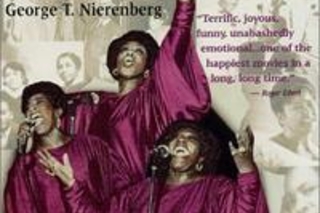Location: Whitney Humanities Center, Room 208
53 Wall St.
New Haven, CT 06511
Open to: General public
Admission: Free
Description: ilm Screening of George T. Nierenberg’s Say Amen Somebody (1983). Discussion with Mellonee Burnim.
Offered in conjunction with the symposium “The Afterlives of Amazing Grace: Religion and the Making of Black Music in a Post-Soul Age”
This cinema verité classic features three epochal figures who pioneered the Golden Age of Gospel Music: Willie Mae Ford Smith, Thomas A. Dorsey, and Sallie Martin. Each played influential roles in creating gospel music as we know it today: Dorsey’s songs are credited with marrying blues music and rhythms with religious and inspirational lyrics; Martin helped him create a national training ground and market for gospel singing; and ‘Mother’ Smith became one of its first and most proficient soloists, mentoring younger singers including Mahalia Jackson. This clip begins in church, where Mother Smith, now in her 80s, belts out the gospel standard ‘That’s All Right’ with the vocal dynamism that made her famous. Speaking to the preacher afterwards, she reminisces about the condemnation she faced when first singing her bluesy ‘new’ music in church. Dr. Dorsey recounts playing the blues circuit with Ma Rainey, and writing over 300 blues songs in the 1920s. Sallie Martin acted as his business manager, travelling the country to introduce his new kind of songs that blended blues and spirituals to church choirs. Martin and Dorsey sing an impromptu rendition of ‘If You See My Saviour’ along with the original recording he made in 1932. As Mother Smith counsels a young singer named Zella Jackson Price about life on the road, the film demonstrates both the special difficulties and the unique opportunities for women gospel singers in the (especially at the time of the filming) male-dominated church. Zella’s rousing rendition of “I’m His Child” conveys the power, inspiration and sheer joy in this unique form of American music.
